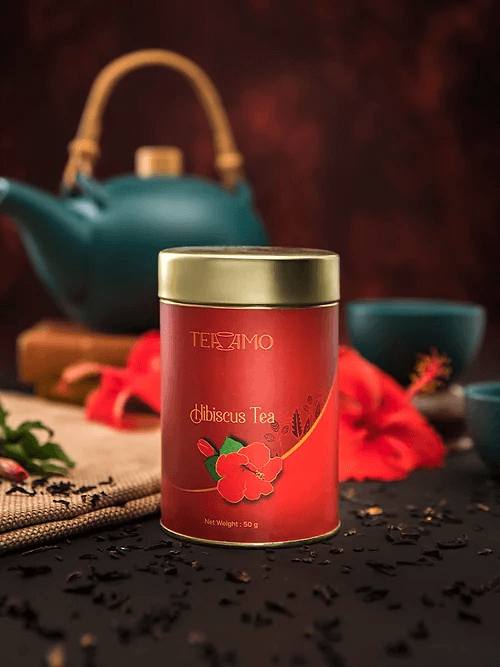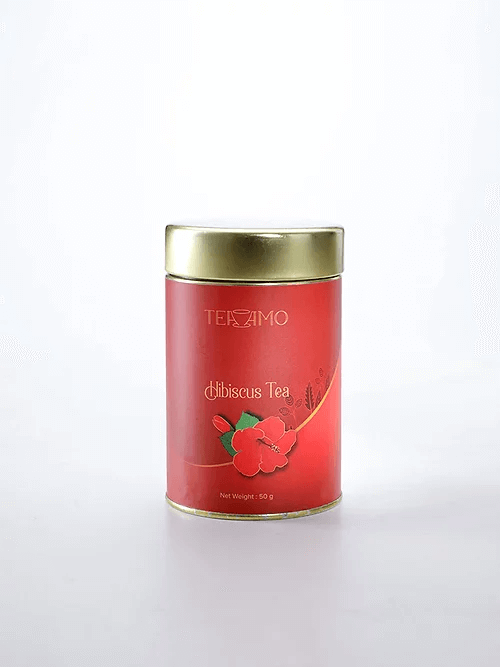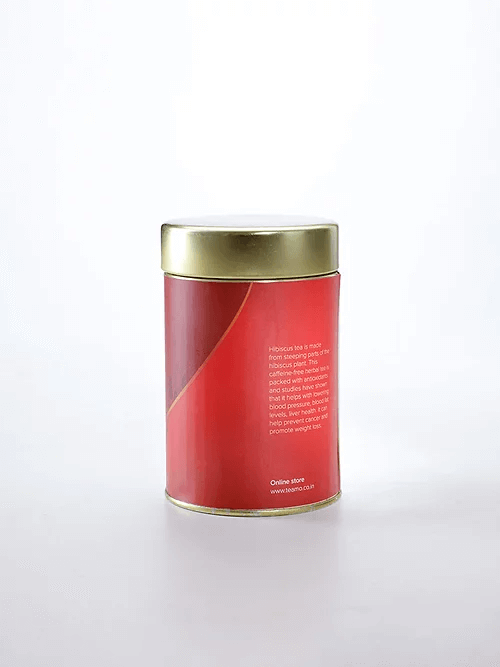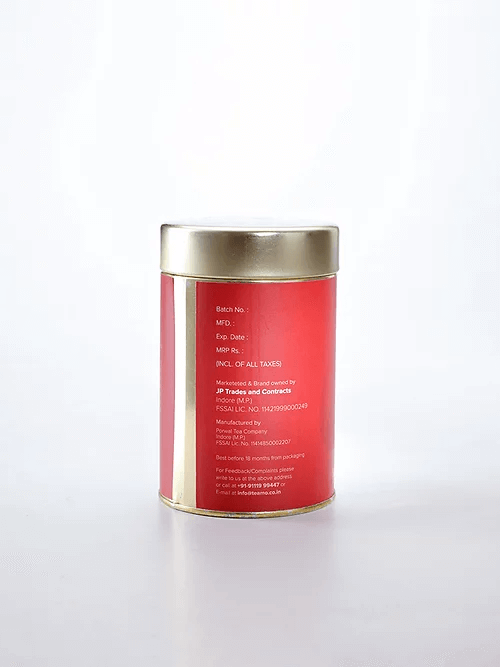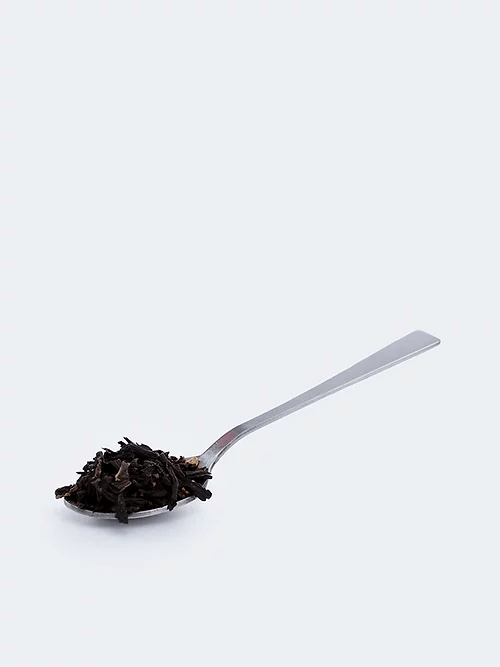Your Shopping Cart Is Empty
Hibiscus Tea (50 grams loose tea tin 50 servings)
Hibiscus tea - Hibiscus, a plant found in warm and tropical parts of the world, is used to make this tea. It has a tart yet sweet punch similar to cranberries and helps boost liver health, lower blood pressure and cholesterol, and may prevent cancer.
Weight: 50 grams
- What is Hibiscus Tea
- Benefits of Hibiscus Tea
The part of the hibiscus plant that protects and supports the flower is called the calyx. The dried calyces are used to make hibiscus tea.
Other drinks made from the hibiscus plant include:
- red sorrel
- agua de Jamaica
- Lo-Shen
- Sudan tea
- sour tea
- Karkade
Hibiscus tea is categorized as an herbal tea. Herbal tea is made from a variety of plants, herbs, and spices. In many countries, herbal tea cannot be called “tea” since it does not come from the tea plant, Camellia sinensis.
Although not as popular as black and green teas, herbal tea sales continue to rise, in part due to their potential health benefits.
Benefits
Historically, hibiscus tea has been used in African countries to decrease body temperature, treat heart disease, and sooth a sore throat. In Iran, hibiscus tea is used to treat high blood pressure.
Recent studies have looked at the possible role of hibiscus in the treatment of high blood pressure and high cholesterol.
High blood pressure
A 2010 study published in the Journal of Nutrition found that consuming hibiscus tea lowered blood pressure in people at risk of high blood pressure and those with mildly high blood pressure.
Study participants consumed three 8-ounce servings of hibiscus tea or a placebo beverage daily for 6 weeks. Those who drank the hibiscus tea saw a significant reduction in their systolic blood pressure, compared to those who consumed the placebo drink.
A meta-analysis of studies published in 2015, found that drinking hibiscus tea significantly lowered both systolic and diastolic blood pressure. More studies are needed to confirm the results.
Cholesterol
Research published in 2011 compared the results of consuming hibiscus versus black tea on cholesterol levels.
Ninety people with high blood pressure consumed either hibiscus or black tea twice a day for 15 days.
After 30 days, neither group had meaningful changes in their LDL or “bad” cholesterol levels. However, both groups had significant increases in their total and HDL or “good” cholesterol levels.
However, other studies have shown mixed results. A reviewTrusted Source published in 2013, found that drinking hibiscus tea did not significantly decrease cholesterol levels.
Other studies, including a 2014 reviewTrusted Source of a number of clinical trials, showed that consuming hibiscus tea or extract increased good cholesterol and decreased bad cholesterol and triglyceride levels.
Better quality studies are still needed to investigate the impact of hibiscus consumption on cholesterol levels.
Weight loss
Some studies have demonstrated positive effects when examining the effects of concentrated hibiscus on managing body weight.
One reportTrusted Source showed that hibiscus resulted in a lower body mass index (BMI), body weight, body fat, and hip-to-waist ratio.
An older study showed that hibiscus extract led to reductionsTrusted Source in cholesterol and triglycerides in the Mexican population. This can lead to a reduced risk of obesity.
However, it should be noted that these studies used concentrated doses, and further research is needed to fully confirm the benefits of hibiscus in tea.

